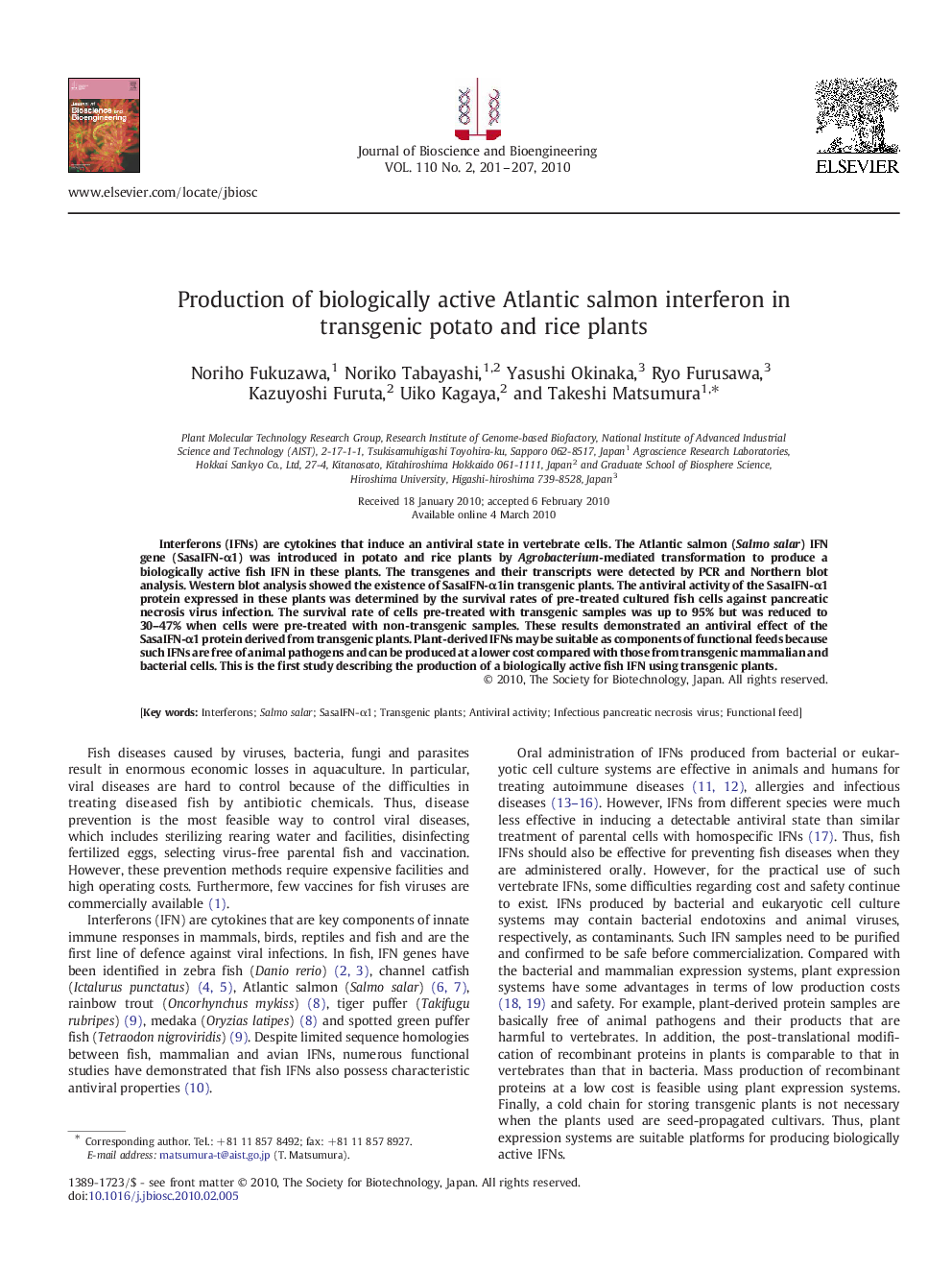| Article ID | Journal | Published Year | Pages | File Type |
|---|---|---|---|---|
| 21507 | Journal of Bioscience and Bioengineering | 2010 | 7 Pages |
Interferons (IFNs) are cytokines that induce an antiviral state in vertebrate cells. The Atlantic salmon (Salmo salar) IFN gene (SasaIFN-α1) was introduced in potato and rice plants by Agrobacterium-mediated transformation to produce a biologically active fish IFN in these plants. The transgenes and their transcripts were detected by PCR and Northern blot analysis. Western blot analysis showed the existence of SasaIFN-α1in transgenic plants. The antiviral activity of the SasaIFN-α1 protein expressed in these plants was determined by the survival rates of pre-treated cultured fish cells against pancreatic necrosis virus infection. The survival rate of cells pre-treated with transgenic samples was up to 95% but was reduced to 30–47% when cells were pre-treated with non-transgenic samples. These results demonstrated an antiviral effect of the SasaIFN-α1 protein derived from transgenic plants. Plant-derived IFNs may be suitable as components of functional feeds because such IFNs are free of animal pathogens and can be produced at a lower cost compared with those from transgenic mammalian and bacterial cells. This is the first study describing the production of a biologically active fish IFN using transgenic plants.
